-
Critic's Rating - 9/109/10
9/10
Chernobyl is an HBO miniseries about the unfortunate Nuclear disaster in Chernobyl on April 26th, 1986. We are inside the Nuclear reactor control room, a visibly frustrated superior shouting orders at two subordinates who refuse to follow the fatal instructions coming from him. A blackmail about a potential threat to the subordinates’ career compels them to take the orders, despite knowing the consequences, alas little do they know that there’s a greater, deadlier consequence incubating that could cause the greatest man-made disaster ever, and unfortunately, it does cause the greatest man-made disaster in recorded history, the Chernobyl Nuclear Power plant Explosion.
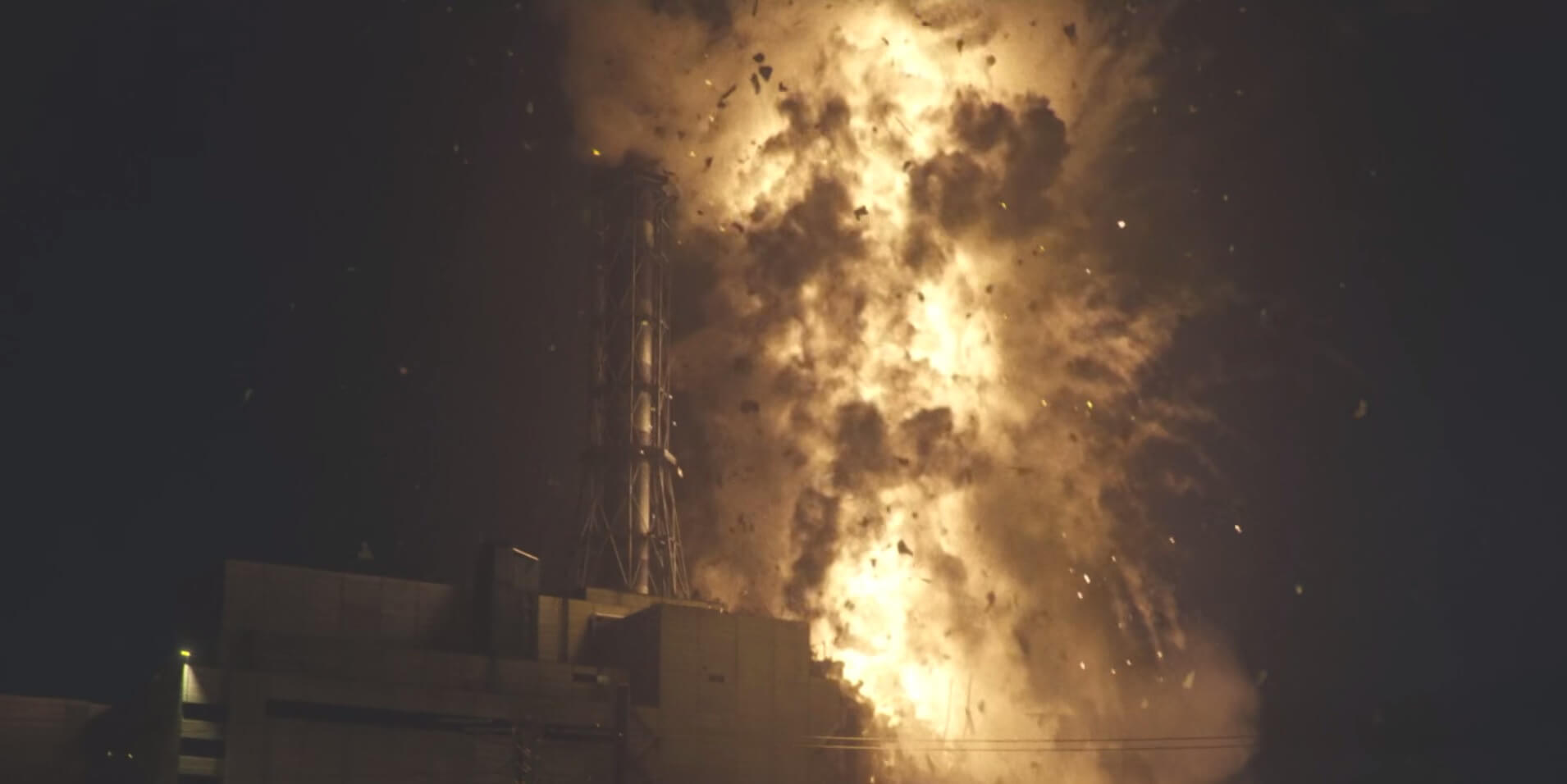
The writing by Craig Mazin is measured. We are given time to soak in the surroundings and the situation, instead of thrusting us right in the middle of the tragedy. After the aforementioned scene, we cut to a small apartment where a lady sees through the window, a distant glow, like a fire but not fire, its more colourful. The visual does not seem worrying, owing to the distance she is at. But as this scene progresses, her husband, who is a fireman, is called up by the department, the lady’s worry escalates a notch higher. He says ” It could not be worse than a fire. ” She is still visibly worried. The scene ends. Now, this excellently written scene encapsulates the style of writing employed by Mazin. Just like the lady’s situation, we are not immediately fed with all the fear in the world, the tension builds, moment by moment or breath by breath or Graphite by Graphite. In a series about a disaster the writing here does not resort to laziness by creating an urgency by cramming several events together. You are aware of the impending danger but are not rushing towards it, what this does is, it gives time for the tension within you to incubate and then the writing finally strikes you with a significant blow, creating a magical narrative.
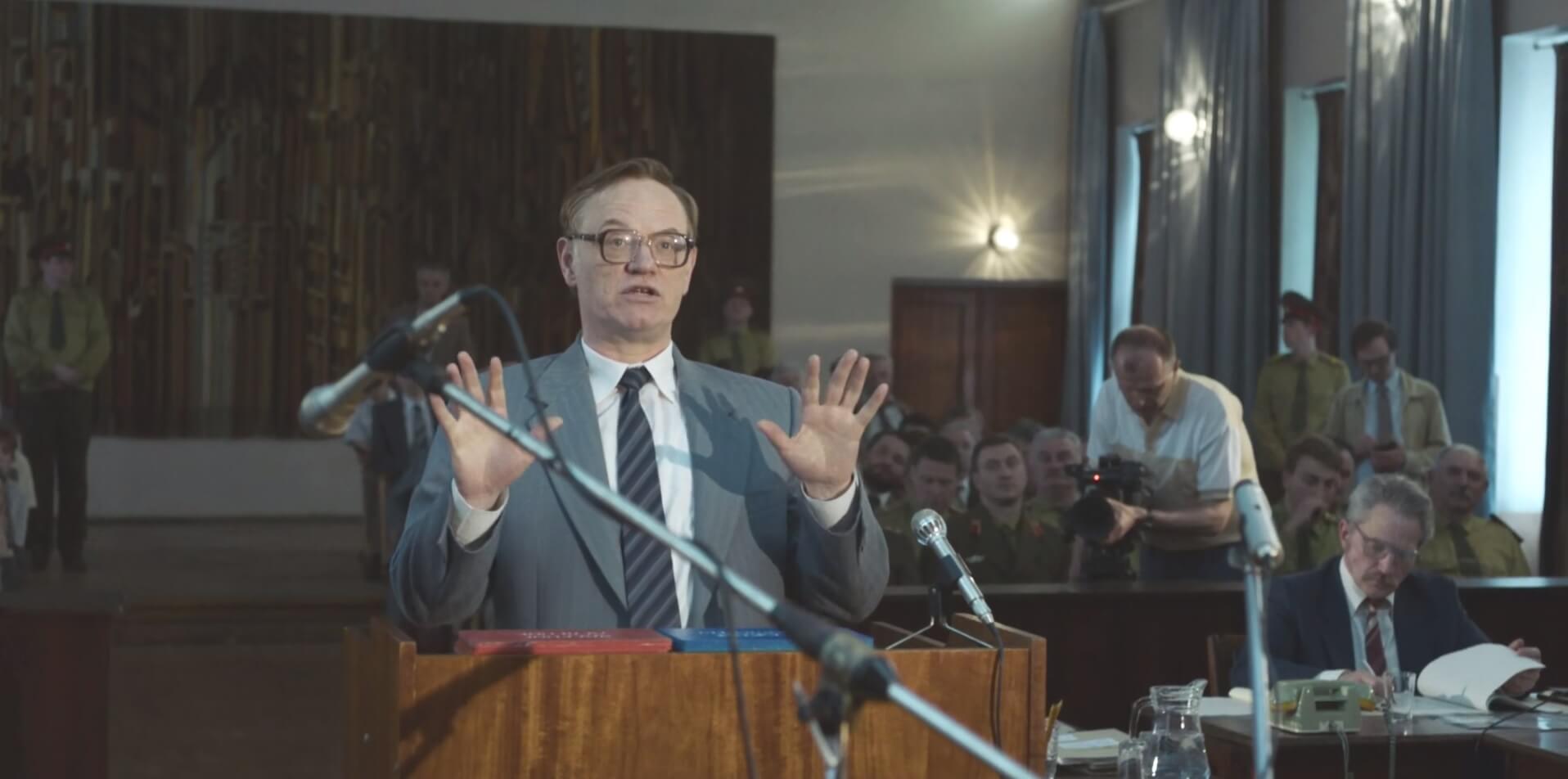
Velry Legasov is a Nuclear Physicist and is the expert that heads the disaster control mission of Chernobyl, with the bureaucrat, Boris along side him. These two characters are played by Jared Harris and Stellan Skarsgard, respectively. The relationship between these two older gentlemen progresses beautifully over the course of the next two years since the disaster. Legasov is an expert in Nuclear Physics and employs all kinds of ideas to control the damage, as things start going out of hands, quickly. Jared Harris brings great empathy and vulnerability to the character. The look on his face, explains volumes about his character. His face is a canvas to life, one could see wiseness but also guilt and a sense of confidence, all of it in his face; clearly showing this man has lived one hell of a life.
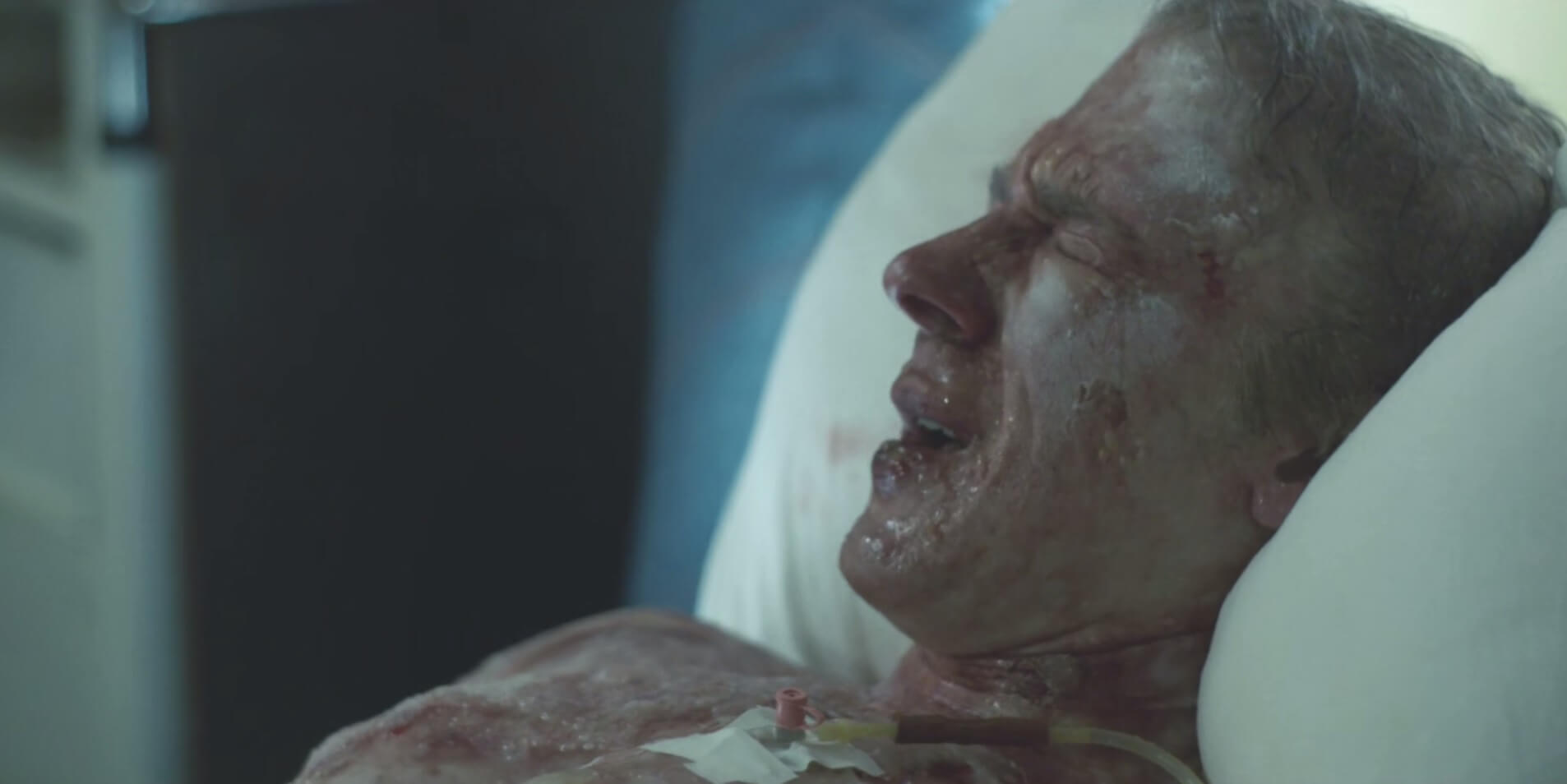
It is essential that this show be evaluated separately for its artistry and the atrocities in it.
The Art/Craft :
To begin with, the foundation of the show is unshakable, thanks to its masterful writing, creating a narrative that compels you to invest in it and then hit you with a shocking blow. It wins over all audience, even the ones completely unaware of the incident and the ones who would not understand the basics of science. Mazin is able to achieve this because he lays over the main narrative with two human stories that are filled with palpable grief. One is the narrative of Lyudmilla, who’s husband ( the fireman ) goes out to put out the fire in the reactor. The journey of this lady is the emotional core of this series. She is a collective representation of the people of Chernobyl. They have all suffered but will endure it all, to see a brighter morning. Jessie Buckley plays Lyudmilla with a sense of strength, an assuredness that is surprising to see in someone who is holding the hand of her dying husband, decayed by the radiation and to see another loved one die. For me, it was this storyline and character that was holding together the proceedings around it. It adds a touch of humanity to the scientific disaster making this tragedy more affecting. It ensures that one does not have to understand the specifics of the incident, but feel for a wife tending to her dying husband, like a scientist (Legasov) tends to the decaying Chernobyl. This beautiful link between the human and scientific threads of this series is its greatest achievement.
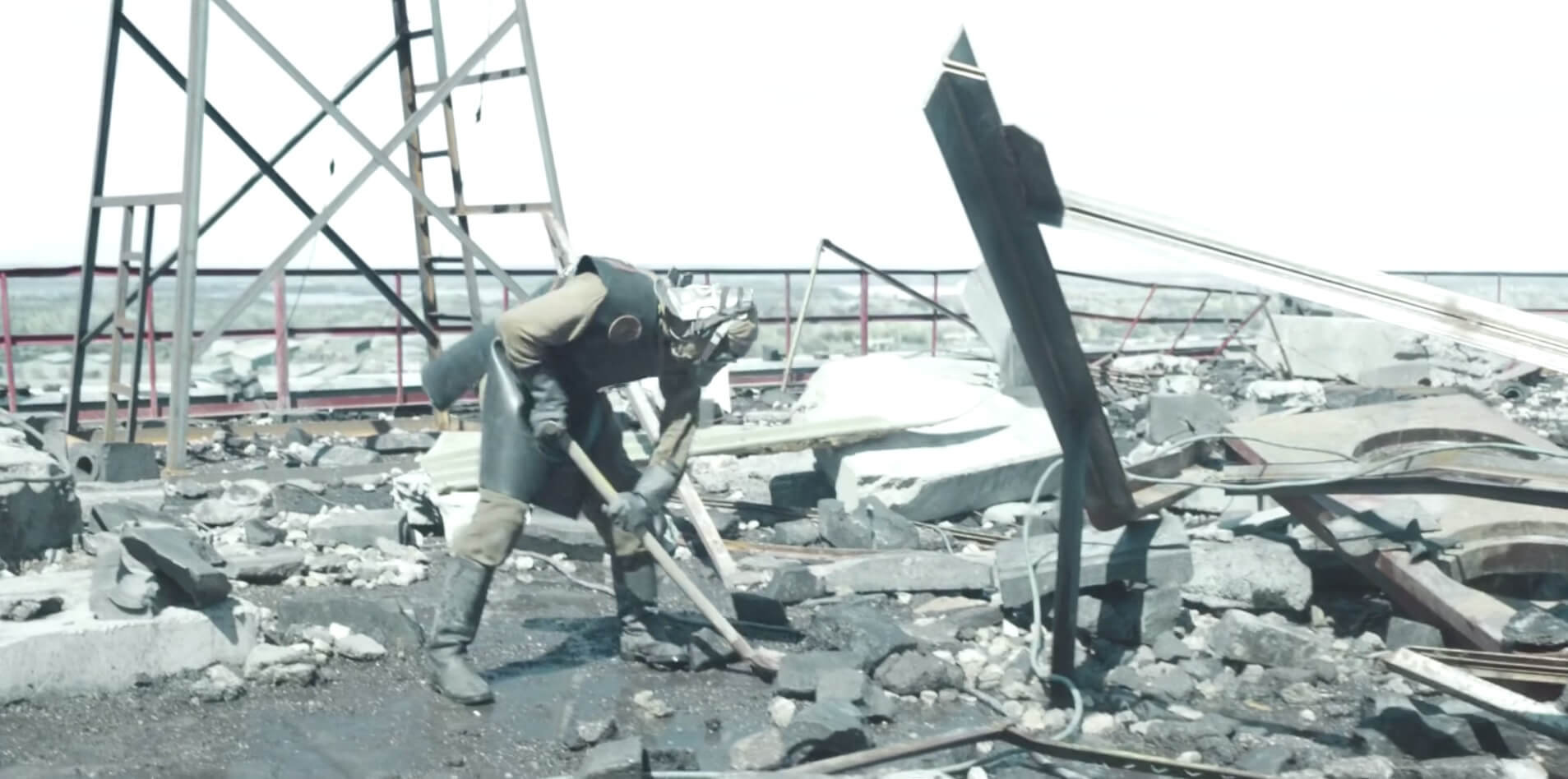
The production department deserves the greatest respect for the lived in spaces they successfully create. The set design of the series is impeccable. With or without CGI, they have achieved something that is impossible without great conviction and sincerity. Scrapped Hospital walls to taped windows and the Nuclear Plant itself is painstakingly created.
The cinematography succeeds in evoking varied moods, from urgency to tragedy and macabre to hope. There’s a green tinge to the frames, a shade of green that accentuates the morbidness of the tragic situation.
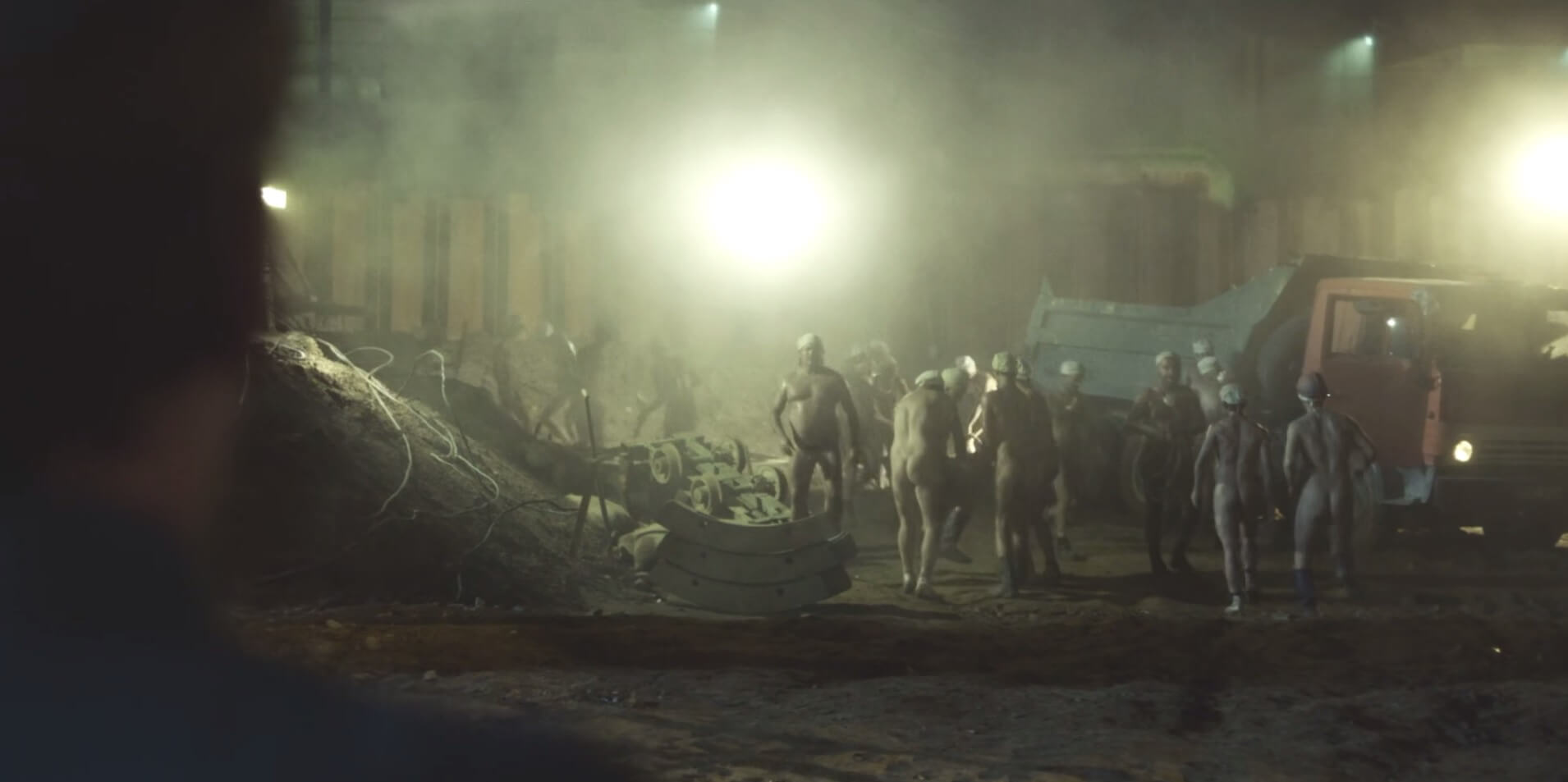
The character of a lady scientist, Ulana Khomyuk, who helps Legasov in finding the root cause for the Nuclear Plant explosion. This character is a collective representation of all the 100s of scientists that helped Legasov in reality. Her character is only introduced in the second episode but had the maximum impact on me. Ulana was the sole voice of reasoning of the series. She is fearless and is determined to find the truth. It is one of the best written characters for women. Emily Watson imbues Ulana with great poise and strength. Her storyline is seamlessly and poetically intertwined with that of Lyudmilla as they both cross paths in some scenes.
The Atrocious events:
The screenplay explores several other corresponding themes, which directly serve the issue at hand. A memorable scene with Miners and the Coal Minister is particularly good. Miners bathed in coal dust stand across the Coal Minister standing in his crisp white suit. The miners walk past him, each patting their hands on his coat, covering it in Coal dust. A stunningly staged scene that tells volumes about everything that is wrong with the social and political setup.
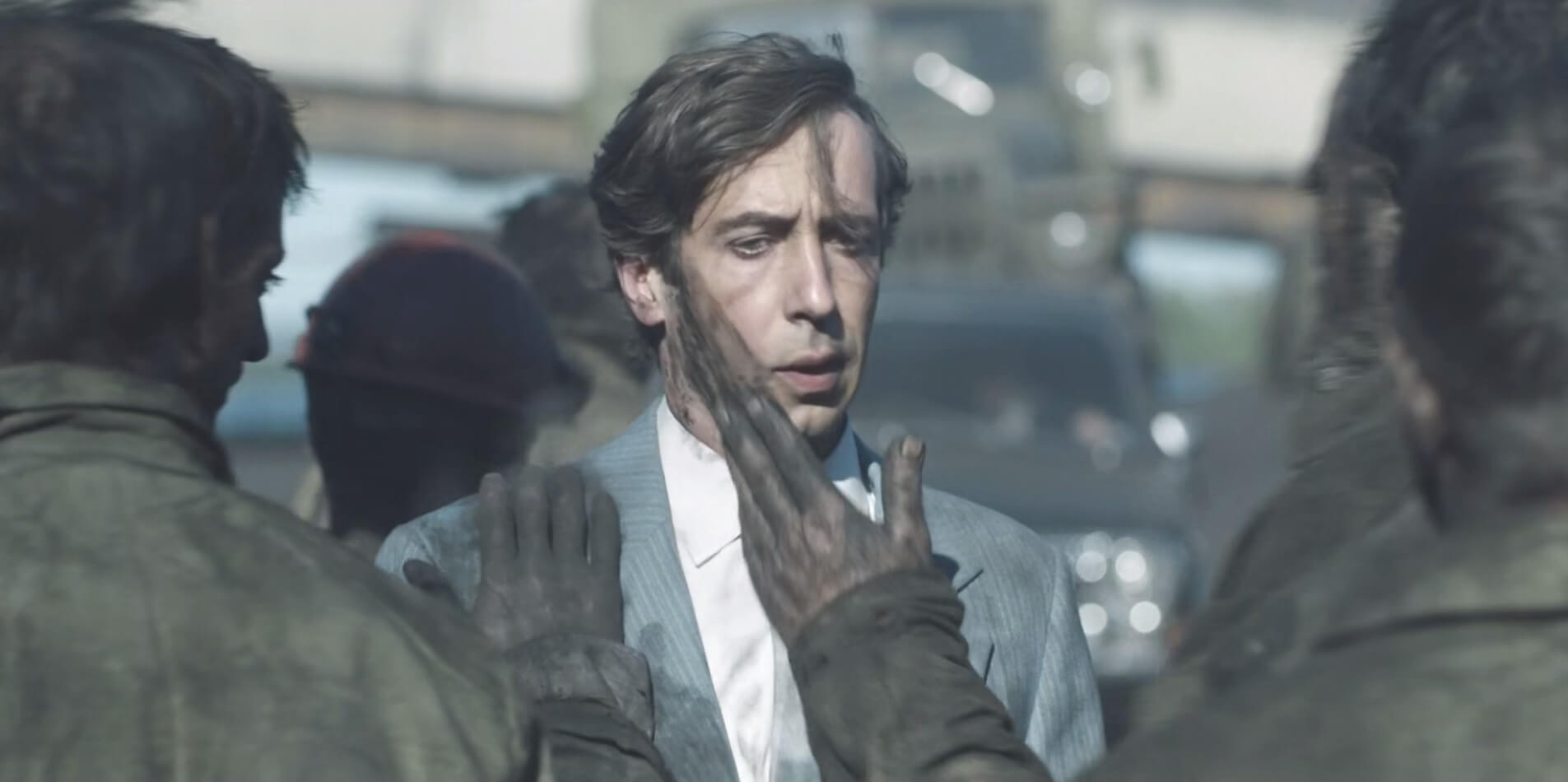
There’s an alternate storyline that is not directly connected to the primary narrative. This is about a young man transferred to a camp where they are required to hunt animals down, so that they do not spread the diseases that happen due to the radiation. The young man tags along with war veterans who shoot down the pets in the neighborhood houses, going from door to door. This narrative poses an interesting question. Humans can eliminate anything that causes trouble to them directly but refuse to act upon people who set off a chain reaction of events that cause disasters like these.
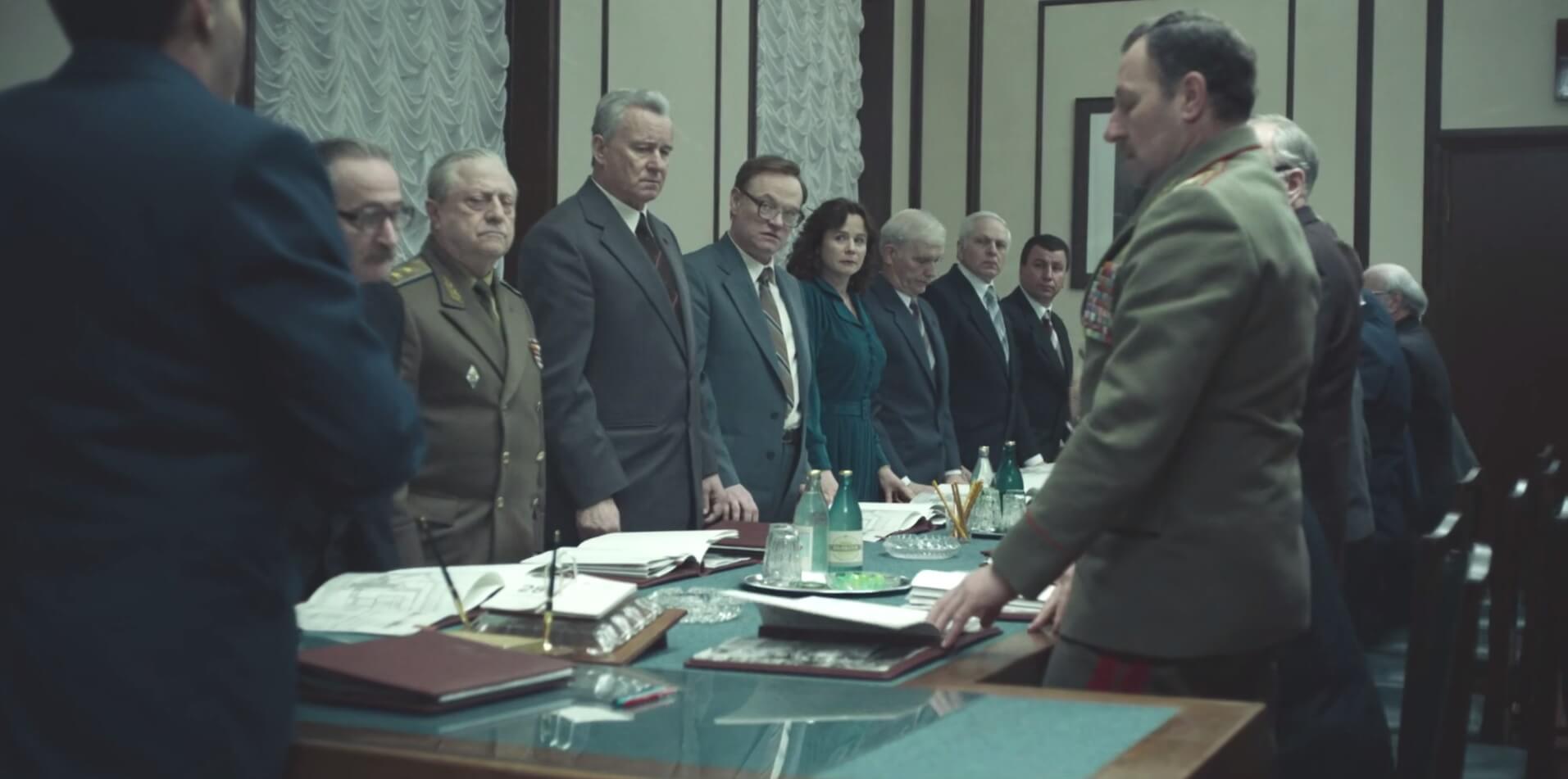
Finally, Chernobyl is a beautiful dance between human error, human greed and human negligence. As all three of these come together, an unfortunate event occurs to set-off the greatest disaster ever. At its heart, Chernobyl addresses the cancerous beurocracy, it vows to break this hierarchy. It is no coincidence that a bureaucrat and a scientist are brought down to the same level by the end of the series, there is no hierarchy that defines them, what defines them is Life and the lack of it, in their case; as they discover the disease inside them. The awe inspiring technicalities of the series and the depressing events of Chernobyl culminate in producing a series that will be hailed as the best for some time to come.








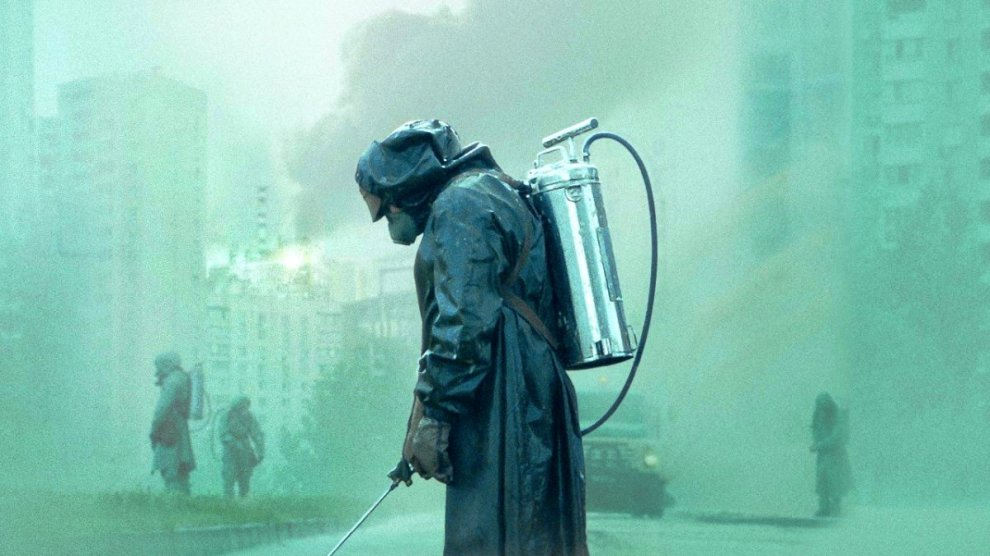






Add Comment